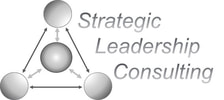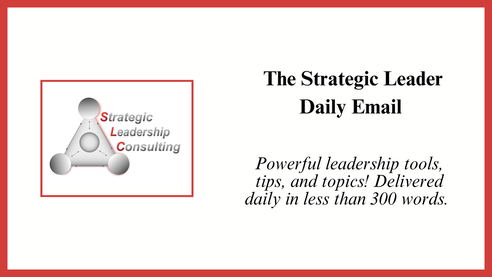|
Colleagues,
MVP: If your organization’s purpose, resources, and structures aren’t aligned to the work people are asked to do, culture will suffer. Today’s episode of The Assistant Principal Podcast is about how teachers can create a stronger classroom culture. It is a different process than creating an organizational culture. The simplest way to think about organizational culture is the interaction between four organizational dimensions:
Four components lead to a positive culture:
Weaknesses in any of these things creates stress and tension, eroding the culture. If you want a better organizational culture, begin by evaluating your alignment. Today’s intention: Be aware of the small frustrations today. When you feel like saying “urggggh!”, pause and think about what’s behind that. Is there a misalignment somewhere? Cheers! Frederick
0 Comments
Colleagues,
MVP: Referent power is strongest. All powers entail an ethical relationship between the influencer and the influenced. Mentors. Mentors influence us. Mentors hold tremendous power with us. The form of power is referent. It is the power of respect and admiration, the desire to emulate and to please. One of the really cool things about referent power is that the person upon who it is wielded is the one who gave the power to the wielder. In other words, people only have referent power because we give them permission – gladly. Referent power is the single strongest form of power. Yesterday I asked you to think about why I kept using the word power instead of just saying influence. Three reasons:
Today’s intention: This is another week in which I am not sure how the messages will land. I believe today’s message is extremely important, but I’m not sure if I’ve lost people along the way. If you have a suggestion or words of encouragement, I would appreciate hearing from you. Email me by replying to this message. Cheers! Frederick Colleagues,
MVP: Expert power comes from being able to help someone grow or achieve something. I want you to read this email every day. I am intentional about trying to get you to read it. By intentionally trying to influence you, I am wielding power. But most of you reading have never met me, so how can I use power on you? Why did you open this email today? What are you looking for? For most of you, you are hoping to learn something useful and you believe I can help you learn it. In believing I can help you learn something important, you have imbued me with expert power. Expert power arises when we believe someone can help us learn or progress in a direction we value. Expert power is non-hierarchical. I am using it right now with you, but you could schedule a call with me and share experiences of your own leadership and the tables would be reversed. You would be the expert wielding power over me! Today’s intention: Do a quick count of some of the people you work with or follow on social media whom you view as experts. Think about what you have learned from them and recognize that they used their power to do so. Does that diminish the value? Why am I using the word power instead of influence? Cheers! Frederick Colleagues,
MVP: Coercive power involves taking things away or withholding things from others and should be used sparingly. Yesterday Collin’s dog, Ruby, chewed up my Roku remote. I put her in her cage. And chastised her. I’m not sure which of these was the most severe punishment. In one instance I put a restriction on her and in the other I inflicted disapproval. Coercive power, similar to its twin, reward power, may take many forms. It also may be wielded by people regardless of hierarchical position. The challenge with using coercive power is that if the person it is used on perceives the “punishment” to be unfair, they become resentful. There are times to use coercive power but they should be few and far between. Today’s intention: Think about the multiple ways people have used coercive power on you and how it felt. Have you ever been motivated to perform better by being punished? Cheers! Frederick Colleagues,
MVP: Reward power comes from giving good things to people, tangible and intangible. This week I’m sharing five forms of power. Yesterday we looked at legitimate power, the only form of power limited to hierarchical positions. Reward power comes in many different forms. Of course, things like money and promotions are rewards used by people in hierarchical positions. But what about other rewards? One fall I did a training with a group of middle school teachers who did not appear to be thrilled about being with me. I began to worry and became quite nervous. Then a teacher at the table nearest me made eye contact and smiled. That smile was a reward and it helped restore my confidence. Throughout the training I would look to her and if she was smiling, I would feel better. Approval and encouragement are forms of reward power. The teacher had no legitimate power over me, but that didn’t stop her from wielding power. Any of us can use reward power and most of us do on a frequent basis. Today’s intention: Applying power includes an attempt to influence. Be watchful today. Do you see people attempting to influence others by way of reward, especially intangible ones? Cheers! Frederick |
Categories
All
Archives
July 2024
|


 RSS Feed
RSS Feed